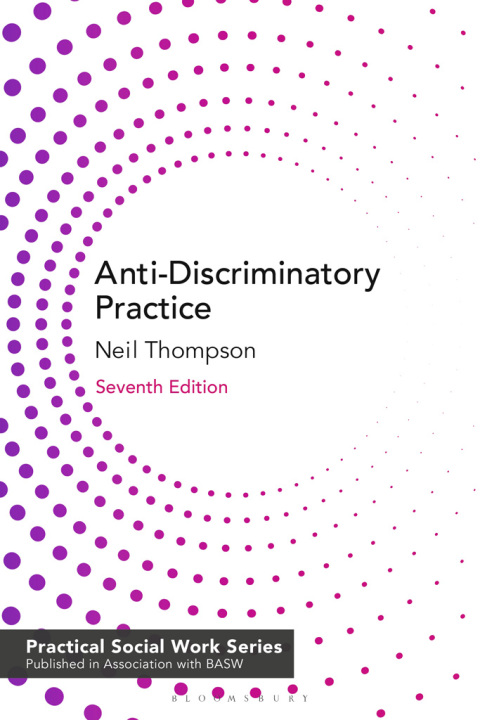Description
Efnisyfirlit
- Cover
- Title
- Copyright
- Contents
- List of research examples
- List of figures and tables
- Preface to the third edition
- Acknowledgements
- Introduction
- 1 Research and Nursing Practice
- Introduction
- Sources of knowledge for nursing practice
- The meaning of nursing research
- The rationale for nursing research
- The role of nurses in research
- The development of nursing research
- 2 Knowledge, Science and Research
- Introduction
- The need for knowledge
- Belief systems
- Belief systems and knowledge
- Science and knowledge
- Science and research
- What is research?
- Science and non-science
- Paradigms
- Qualitative research
- 3 Quantitative Research
- Introduction
- What is quantitative research?
- The role of measurement in quantitative research
- Objective and subjective measurements
- Types of quantitative data
- Quantitative approach as deductive
- Data collection and analysis
- The value of quantitative research to nursing
- Criticisms and limitations of the quantitative approach
- 4 Qualitative Research
- Introduction
- What is qualitative research?
- Main characteristics of qualitative research
- Common approaches in qualitative research
- Similarities and differences between approaches
- Other types of qualitative studies
- Qualitative research and nursing
- Qualitative studies in nursing and health research
- Criticisms and limitations of qualitative research
- 5 Mixed Methods
- Introduction
- The quantitative–qualitative debate
- Rationale for combining quantitative and qualitative methods
- Types and purpose of combining methods
- Triangulation
- Implications of triangulation
- 6 The Research Process and Ethical Issues
- Introduction
- The meaning of research process
- The research process and the nursing process
- The process in quantitative research
- Main stages of the research process
- The process in qualitative research
- Understanding the research process
- Critiquing the research process
- Ethical issues and the research process
- Ethical principles in the conduct of research
- Ethical issues in quantitative and qualitative research
- Research governance
- Nurses’ role as patients’ advocates and as researchers
- 7 Literature Reviews
- Introduction
- The meaning of literature
- Primary, secondary and tertiary sources
- Assessing the value of publications
- Accessing information sources
- Purpose of literature reviews
- Critiquing the literature review
- Systematic reviews
- The systematic review process
- Systematic and exploratory reviews
- Validity and reliability of reviews
- Appraisal of systematic reviews
- 8 Research and Theory
- Introduction
- What is a theory?
- Practice, research and theory
- Theory and research
- Conceptual frameworks in quantitative research
- Conceptual frameworks in qualitative research
- Evaluating the use of conceptual frameworks in research
- 9 Research Questions and Operational Definitions
- Introduction
- Formulating research questions
- Aim or purpose of the study
- Research questions
- Research objectives
- Hypotheses
- Operational definitions
- Evaluating operational definitions
- Research questions in qualitative research
- Critiquing research questions and operational definitions
- 10 Research Designs
- Introduction
- Research design
- Selecting a design
- Variations on research designs
- Qualitative research approaches
- 11 Experiments
- Introduction
- The meaning and purpose of experiments
- Clinical trials
- The logic of experiments
- Intervention
- Control
- Randomisation
- Placebos and blind techniques
- Internal and external validity
- Ethics of experiments
- RCTs in nursing
- Evaluating experiments
- 12 Phenomenological Research
- Introduction
- Phenomenological research in nursing
- The origins of phenomenology
- Husserlian phenomenology
- Post-Husserlian phenomenology
- Phenomenological research methods
- The phenomenological descriptive method
- Interpretive phenomenological methods
- Value and limitations of phenomenological research
- 13 Grounded Theory
- Introduction
- The meaning of grounded theory and its value to nursing
- Versions of grounded theory
- Key features of grounded theory
- Data collection methods
- Rigour in grounded theory studies
- Criticism of grounded theory
- Evaluating grounded theory studies
- 14 Ethnography
- Introduction
- Studying behaviour in context
- What is ethnography?
- Origins of ethnography
- Contemporary ethnography
- Key features of ethnographic studies
- The ethnographic process
- Rigour in ethnographic studies
- Reporting findings
- Ethics of ethnography
- Criticisms and challenges of ethnographic research
- 15 Samples and Sampling
- Introduction
- Samples and populations
- Types of sample
- Types of probability sample
- Types of non-probability sample
- Sampling in quantitative research
- Sampling in qualitative research
- Critiquing samples and sampling
- 16 Questionnaires
- Introduction
- Use of questionnaires in nursing
- What is a questionnaire?
- Questionnaires in nursing research
- Question formats
- Advantages and disadvantages of questionnaires
- Validity and reliability of questionnaires
- Assessing validity
- Assessing reliability
- Pilot-testing the questionnaire
- Critiquing questionnaires
- Ethical aspects of questionnaires
- 17 Interviews
- Introduction
- Interviews in clinical practice
- Research interviews
- Structured interviews
- Validity and reliability of structured interviews
- Qualitative interviews
- The qualitative interview process
- The content of qualitative interviews
- Rigour of qualitative interviews
- Semi-structured interviews
- Focus groups
- Ethical implications of interviewing
- Critiquing interviews
- 18 Observations
- Introduction
- Observation and nursing practice
- Observation in nursing research
- Limitations of observations
- Structured observation
- Unstructured observation
- Participation in observation
- Ethical implications of observation
- Critiquing observation
- 19 Making Sense of Data
- Introduction
- What does making sense of data mean?
- Quantitative data analysis
- Levels of measurement
- Statistical levels
- Descriptive statistics
- Inferential statistics
- Qualitative data analysis
- Computer-assisted qualitative data analysis
- Ensuring rigour in data analysis
- 20 Evaluating Research Studies
- Introduction
- Critiquing skills
- A structure for evaluating quantitative studies
- Validity and reliability in quantitative studies
- Evaluating qualitative studies
- Ensuring rigour in qualitative studies
- Omission and exaggeration
- The role of researchers in facilitating evaluation
- Frameworks and checklists for evaluation
- 21 Evidence-based Practice
- Introduction
- Justifying practice
- Rationale for evidence-based practice
- What is evidence-based practice?
- Steps in evidence-based practice
- Objectives of evidence-based practice
- Difference between evidence-based practice and research utilisation
- Types and levels of evidence
- Evidence-based nursing
- The nature of nursing knowledge
- Implementing evidence-based practice
- Nurses’ use of research
- Evidence-based practice: whose responsibility?
- Glossary
- Index






